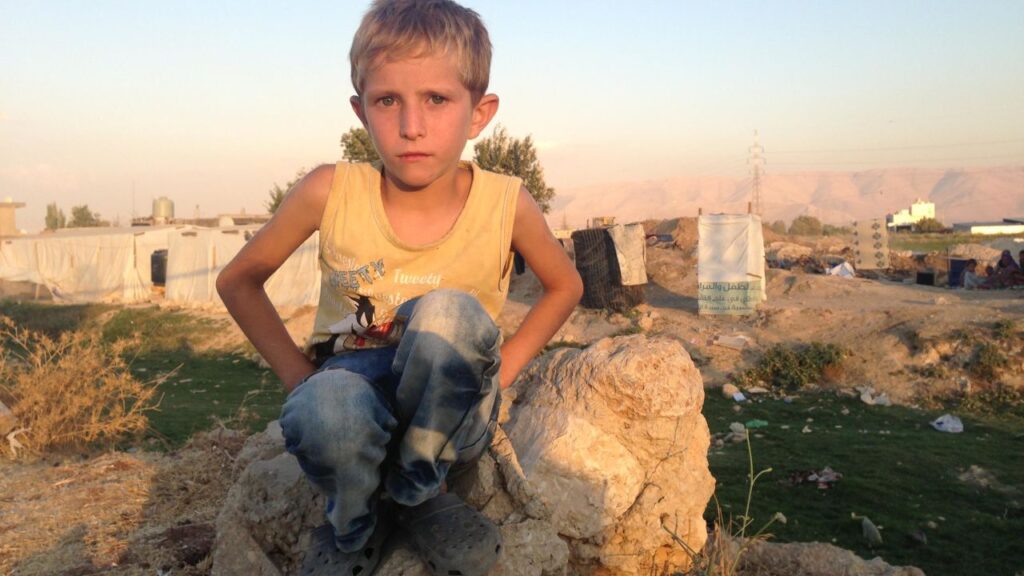For the seven days, I was there, most of the kids in the camp followed us in a gaggle, circling us at times, giggling and practicing their English – “Hello,” and “Thank you.”
They loved to see their images on my camera’s display screen after I took pictures.
Not Abdel. He stood off to the side, only glancing occasionally at the other kids following our crew around. He lingered nearby most of the day but didn’t talk to me or anyone else. When I sat down on a curb, I motioned for him to join me. I think I saw him smirk.
We just sat at first. He didn’t talk. Then, via my translator sitting beside me, I asked Abdel if he liked Tweety Bird — the cartoon character on the T-shirt he was wearing. He shrugged, saying he had never seen that cartoon.
They didn’t have a television in his two-bedroom home in Syria, he told me. And of course, there’s no one in the 10-by-10-foot cement-floor refugee tent he shares with his mom and two brothers in the camp.
You May Also Read: The Crisis Of Orphaned Children In Syria
In Syria, he went to school — first grade, he proudly tells me — and played outside with his friends for fun.
But that was before the war. I asked Abdel if it still felt safe to play outside in Syria. He shook his head no and held out his misshapen right arm. He broke it running from a gunfight, he said. It looks as though he didn’t receive any medical care for his injury — the bones healed so out of place, he can’t bend his arm all the way or lay it out straight.
It wasn’t Abdel’s injury that led his family to leave their home for an uncertain future, a life as refugees. This was an explosion, just weeks later, that left his 4-year-old brother severely burned. Abdel’s dad told them to flee. Get to the border until the violence subsides, he said.
Abdel’s father stayed behind to work and protect the family’s modest home, a scenario common to many of the refugees I met.
That was four months ago. Abdel now carries the title of “man of the house.” The worry in his eyes is constant. The weight he is carrying is so heavy I felt it just sitting next to him.
Abdel now sleeps on the cement floor of the family’s tent, in a strange place with none of the familiarity of home. He showed me the virtually empty living space, containing a plastic chair, a few blankets, and a bucket.
His baby brother is extremely malnourished. Abdel himself is painfully thin. His last meal was yesterday, he said. He ate rice.
By Danielle Dellorto, 7-year-old’s story shows the pain, worry of Syrian refugees, CNN.com
By Danielle Dellorto, 7-year-old’s story shows pain, worry of Syrian refugees, CNN.com, September 3, 2013By Danielle Dellorto, 7-year-old’s Story Shows Pain, Worry of Syrian Refugees, CNN.com, September 3, 2013.

